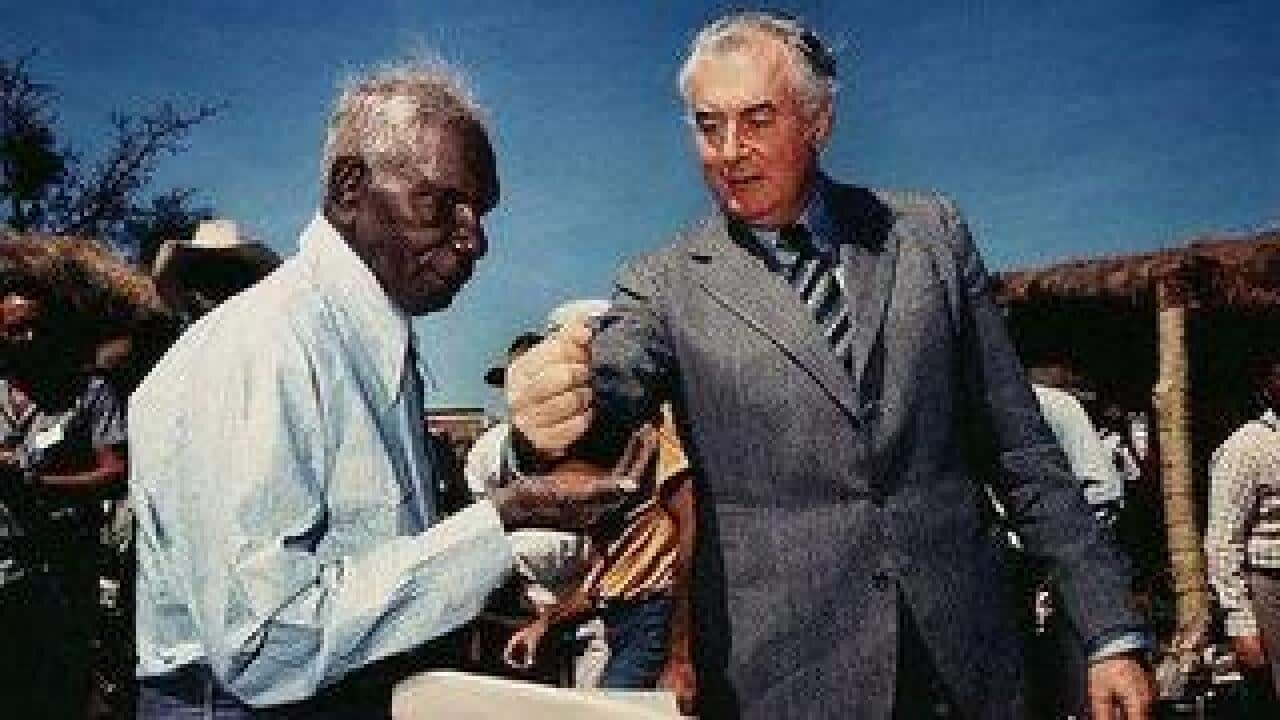An action, fifty years ago, that's become one of the most significant political moments in contemporary Australian history, one that had deep symbolic value but also had a profound intellectual base.
It's been half a century since Gurindji man Vincent Lingiari led a group of pastoral workers off the job from Wave Hill Station in Kalkarindji.
What resulted was a seven year strike for improved working conditions, and more importantly, the return of their land.
Professor Larissa Behrendt will deliver the speech on 11 August, entitled 'Vincent Lingiari and the Heartland Legacy: Custodianship in the 21st Century.'
Behrendt will address topical issues facing Indigenous people today such as:
- Equal access to Australian society
- Child detention in the NT
- Closing the gap
- Homelessness
- Racial discrimination
- The forced removal of Aboriginal children
- The twenty-five year anniversary of the Royal Commission into Aboriginal Deaths in Custody
- The twenty year anniversary since the Bringing them Home Report.
Behrendt says during her time as a researcher, she found the best solutions do not come from bureaucrats and politicians, instead they come from the community.
“Like the Ngarrindjeri and the Gurindji, they know what the most effective solutions to their problems. And more than that, beyond that, they find the ways to keep their culture and languages strong and resilient," she said.
"They find the best ways to protect their lands and water. They find the best ways to keep their communities healthy, vibrant and strong.”
“Vincent Lingiari and the Gurindji people who walked with him changed the Australian political landscape. But their wisdom, the rightness of their actions and their vision for how to build a healthy, sustainable and vibrant future for Aboriginal people in Australia has as much wisdom for us today as it did when the Gurindji took those first revolutionary steps in 1966.”
RELATED ARTICLE:

Vincent Lingiari & Gough Whitlam: the story behind the image
A piece of Indigenous land rights history:
In March 1966, the Australian Arbitration Commission determined that Aboriginal and Torres Strait Islander workers should be paid equal wages. However, this was not due to come into effect for three years.
The decision sparked several small strikes around Australia.
On the Vestey property ‘Wave Hill’ -one of the largest pastoral stations in the Northern Territory - Aboriginal people were dismayed and angry. When their spokesperson, Vincent Lingiari (a Gurindji man) asked the station master in August for full wages and was refused, he led Gurindji, as well as Ngarinman, Bilinara, Warlpiri and Mudbara stockmen, domestic workers and their families in a strike and walked off the station.
The strike was to last 7 years. Although prompted by a call for fair wages, the primary demand of the Gurindji was to have their land returned to them. The strike became one of the first events to attract wide public support for Indigenous land rights in Australia.
Although prompted by a call for fair wages, the primary demand of the Gurindji was to have their land returned to them. The strike became one of the first events to attract wide public support for Indigenous land rights in Australia.

Prime Minister Gough Whitlam gained agreement from the Vesteys to give the Gurindji back a part of their land and a new lease was developed. The formal handback took place on 16 August 1975 and is recognised as a landmark achievement in the Indigenous land rights movement in Australia.
A little bit about Larissa Behrendt:
Gamilaroi/Eualeyai woman Larissa Behrendt is the Professor of Law and Director of Research at the Jumbunna Indigenous House of Learning at the University of Technology, Sydney.
Behrendt has published several texts and in 2005 she was awarded the Commonwealth Writer's Prize for her novel Home. She is also the author of Indigenous Australia for Dummies.
Larissa wrote and directed the Walkley nominated feature documentary, Innocence Betrayed and has written and produced several short films.
In 2009 she was awarded NAIDOC Person of the Year award and in 2011 she received one of the most prestigious awards, NSW Australian of the Year.









